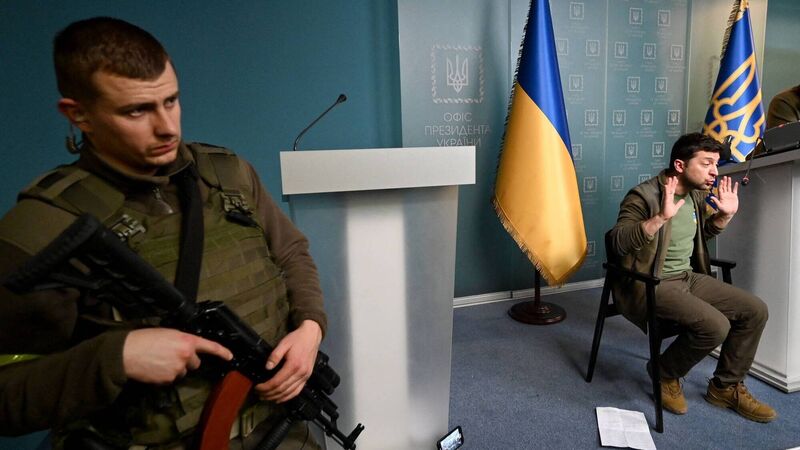Terry Prone: Sadly, our warm consensus is of little use when fighting despots like Putin

Volodymyr Zelensky won the hearts of the West with impassioned videos from Kyiv. A grim possibility is that the Ukrainian president's media appearances will achieve no more than that. Picture: Sergei Supinsky/AFP/Getty
THE parish priest’s contribution sums it all up. Live on the air, he was talking to Joe about the Ukraine situation when he took the opportunity to lash a can of red paint onto the fencing of the Russian embassy in Dublin. Much less extreme than the burning of the British embassy, then in Merrion Square, back in the spring of 1972. But Dolphin’s Barn parish priest Fr Fergal MacDonagh made his point. Got pictured beside the splotches of scarlet paint. Found his way into the next day’s media. Won his 15 minutes of fame.
This is not to denigrate the cleric involved, although Yuri Filatov, the Russian ambassador, would undoubtedly view the 60-year-old as one of the protestors the ambassador condemned on state-controlled Russian TV as “violent and aggressive”.















